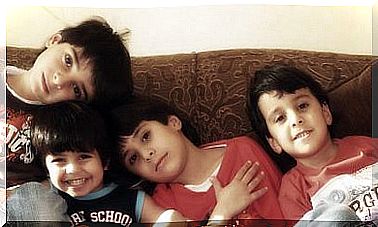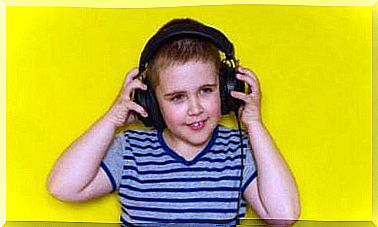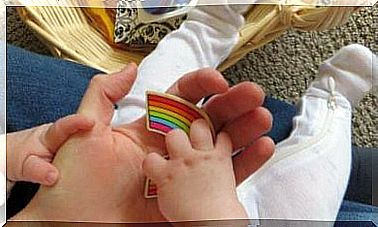Hypersensitive Children: How To Educate Them Without Hurting Their Feelings

Educating children is never easy, but for the parents of hypersensitive children it can be particularly challenging. In this article, we will reveal educational strategies for hypersensitive children to successfully educate their children, even if they are highly sensitive and emotional.
Parenting is one of the most rewarding jobs in the world and anyone who has the privilege of being one is truly lucky. However, it’s not always easy. Usually, the rewards come after hard work.
It is precisely through this hard work that we mature as parents and individuals and, from time to time, we are rewarded with moments that are priceless, fill our hearts with joy and assure us that what we are doing is right. This task can be even more difficult for parents of hypersensitive or highly emotional children.
Who are hypersensitive children?
Hypersensitive children are very sensitive and often react impulsively. They feel things on their skin on a deeper level. Additionally, these children are incredibly empathetic and perceptive of their surroundings and the way they move around their environment.

When a very sensitive child appears frustrated, try to reassure him that it is okay to get nervous when something is not going our way. The right thing to do is to teach him to understand when it’s time to stop and try again later.
In fact, hypersensitive children need to count to 10 when they feel stressed and to regain their composure. For a hypersensitive child, words are very important and influence his or her feelings.
Once the behaviors and peculiarities of hypersensitive children are understood and accepted, it is necessary to understand what are the appropriate ways to educate them. Below, we will discuss this in more detail.
Educational strategies for hypersensitive children
First of all, it must be understood that hypersensitivity is not a disability or a syndrome, but a personality trait. Being hypersensitive is actually a wonderful personality trait. Know that once the child and the parents understand how to organize and take care of the deep emotions and feelings, life will give you unique experiences.
Avoid being defensive
Parents need to be aware of their own feelings and those of their children. In fact, we must accept the fact that our children are separated from us, that is, they are individuals with their own thoughts, feelings and reactions, sometimes (very often) they get angry with the choices we make. This is a good sign.
So, as parents, we need to be aware of this individuality and support their feelings. In doing this, it is important not to be on the defensive and let ourselves be overwhelmed by our own emotions at the expense of their serenity.
Show empathy
When your child is angry about something, it is important to show empathy and understanding with words, rather than walking away to let them calm down. When we leave, we may be sending the wrong message to our children, that is, making them feel wrong. We need to show that we care about how they feel and give them the opportunity to express their feelings.
Say warmly and sincerely, “I see that you are angry with me and I am the kind of mother who really wants to listen to you. Tell me why you are angry with me and we will find a solution together . ” Doing it with conviction and showing empathy is crucial.
For example, to a three-year-old, you might say, “Mom sees that you are disappointed. I understand you want to play again but now it’s bath time. Don’t be angry with me: I understand that you find it difficult to stop playing but the bathroom is just as important. “
We must always be there for our children, both emotionally and physically. Only in this way will we create strong bonds and make sure that they can trust us, even and above all in the most difficult moments.

Discipline strategies
Once communication and emotional support are established, it is important to set boundaries and move on. You will need to show your child that you have consistent behavior and an attitude that can be trusted. We need to be able to sincerely support our children and make them believe they can do it.
When we offer this kind of interpretation, we cannot do it in a vacuum. We need to equip them with the right tools to understand what they are doing, understand the consequences and learn from them.
The goal is to be as open as possible to dialogue with our children, making them understand that parents have the difficult task of having to say no. It’s difficult because it bothers someone we love. But it is necessary, because our job is to protect our children and help them learn.









